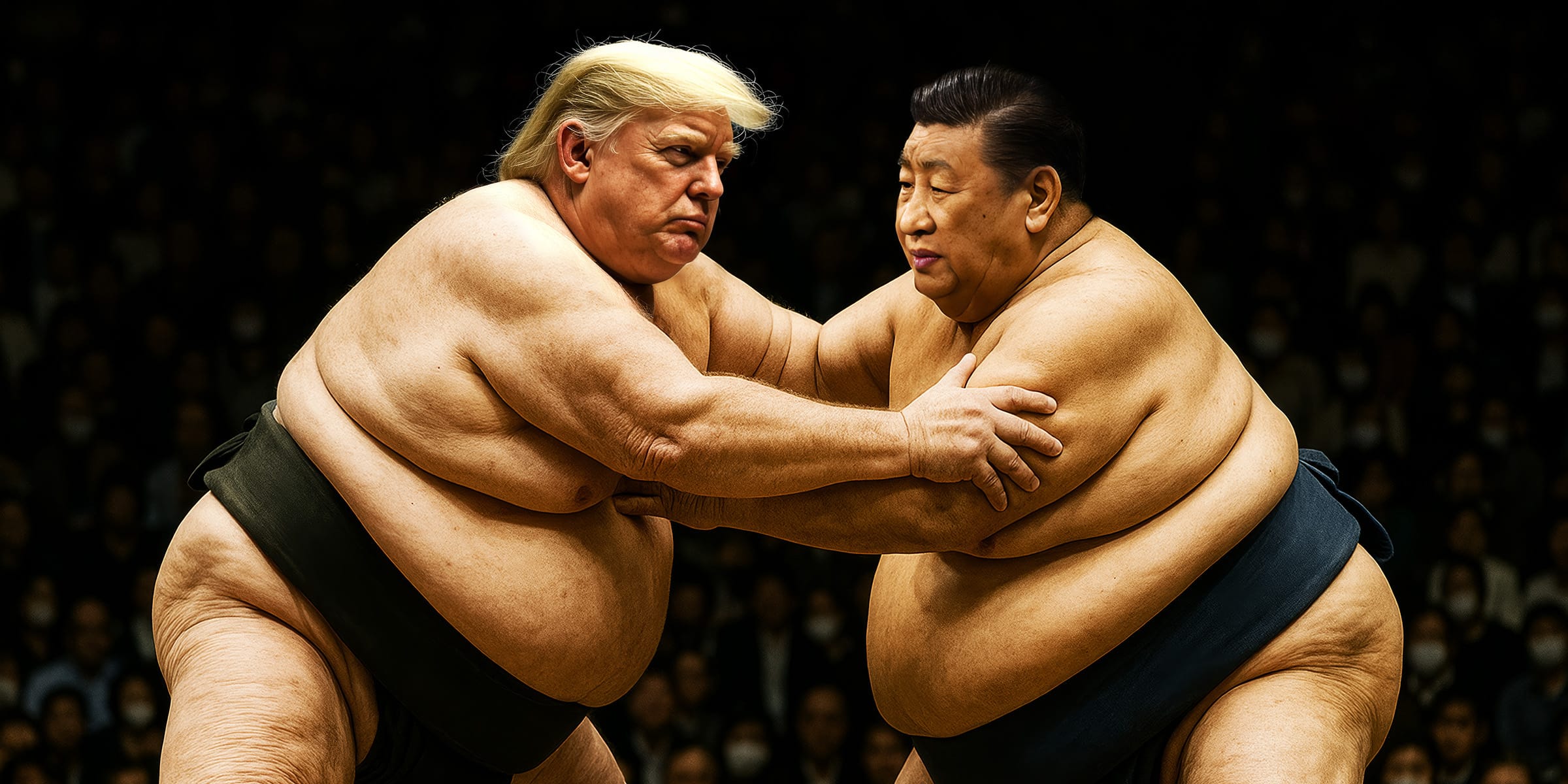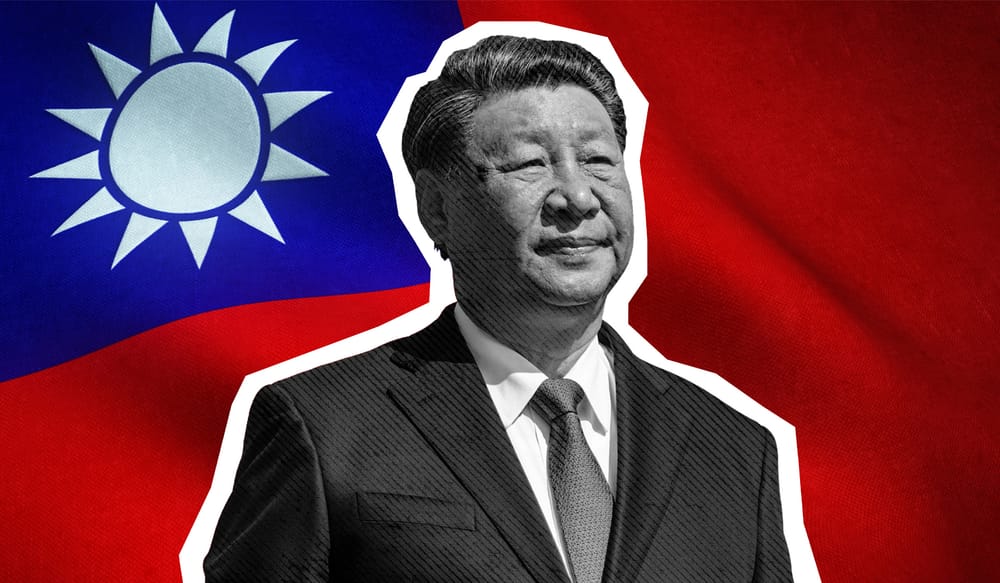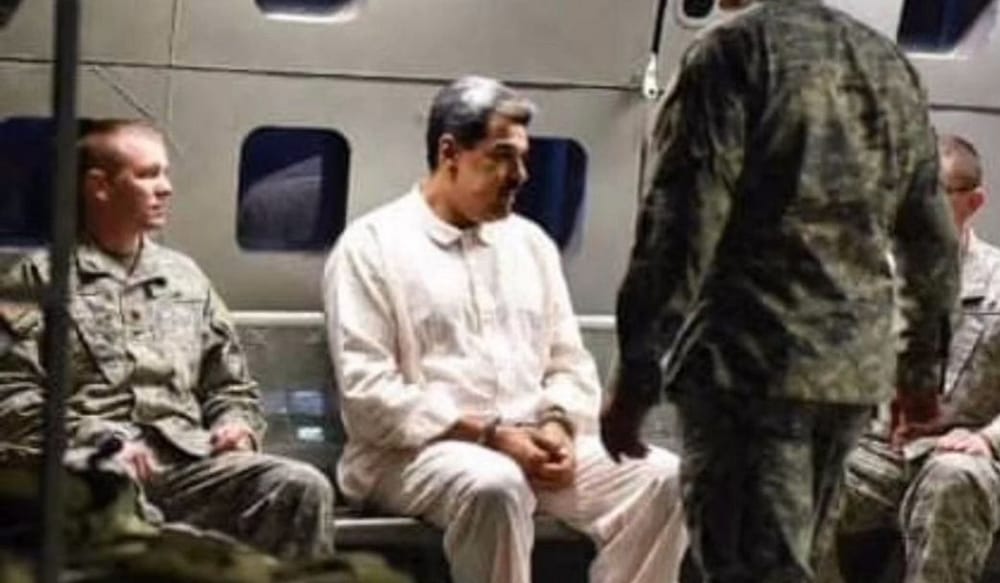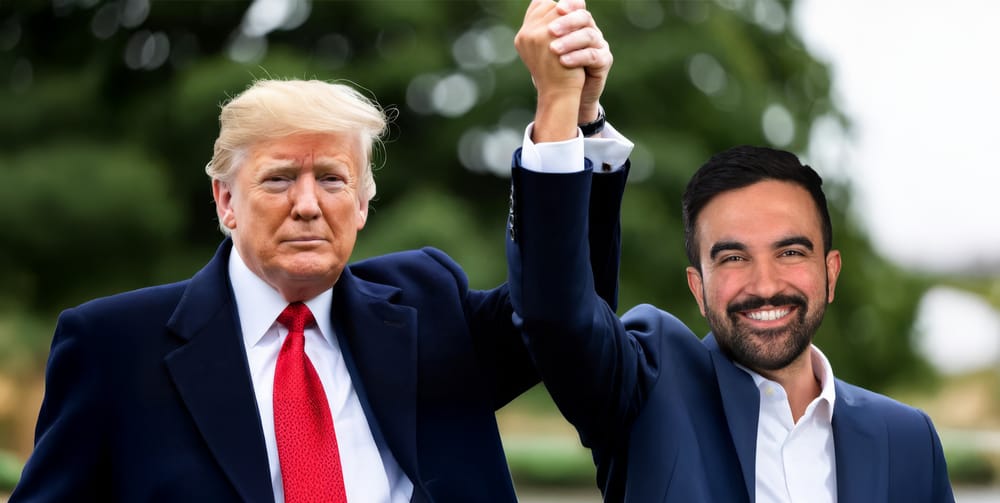Following Donald Trump's public outreach to China three days ago, calling for a negotiation and promising a quick and big deal, Beijing has now silently reciprocated with a positive move of its own, exempting select American goods from its own tariffs imposed in retaliation.
In reality, what you're seeing are two heavyweight sumo wrestlers trying to feel each other out while avoiding a confrontation, a defeat in which would be too costly for either of them.
The way both of them engaged reveals much about their concerns and motivations.
Trump was first to extend an olive branch – this likely isn't an accident.
First of all, the US president is concerned about economics before politics. He can deal with the hecklers but tanking stocks and paranoid bond markets both make him look bad and undermine his reforms of the country.
He needs to make the economics of his plans work for it to yield political benefits.
And since financial markets are more emotional than logical, he had to make a bold, public statement to calm them down again. Promising a quick deal and substantial reduction of tariffs on China he has achieved the bounce-back without any real concessions.
Secondly, he must have been told by his advisors that China will never bow to pressure because of its extreme concept of face (even more so for a paranoid dictator currently in charge).
Because for Xi politics come before economics. China has a much higher threshold for economic pain, but the ruling party is obsessed with political control and maintaining its image with the public.
To understand how absurdly important face is in China, you have to remember that they still have the portrait of Mao hanging over the entrance to the Forbidden City – the guy whose incompetence starved 50 million people that he blamed sparrows for, which he organised the entire nation to exterminate:

If they can excuse Mao's demented lunacy that killed millions just to justify their grip on power they're not going to beg Americans to come to the table, even if the country was on fire.
So, Trump had to make the move first, and he did it in a way that accomplished his immediate goals – that is getting the financial markets to relax a bit.
But that doesn't mean he's going to get a major deal with China quickly – nor that he even means to.
He said what he had to say and now Xi Jinping did what he had to do – silently exempted certain American goods from China's tariffs. Unlike Trump, he wants to do this as quietly as possible, because he needs to project an image of resilience and strength to the public – and the less people know, the better.
This, not direct talks, is how the new "trade deal" may be achieved – without any actually being signed.
Each of the countries might gradually lower the barriers on items that are of the highest importance to it, while effectively freezing trade in everything else, waiting for the opponent to buckle.
The truth is that it may simply be too difficult to address the entire complex trade relationship between the two countries in a quick round of talks. Scott Bessent, Trump's Secretary of the Treasury, suggested that the full trade rebalancing could take up to two or three years – which would still be a relatively short timeline, if at all achievable.
The US cannot accept the status quo, because it is economically unsustainable. China, on the other hand, cannot offer concessions, because its leadership can't be seen giving in to foreign demands.
So, instead, they may continue acting unilaterally, making gradual tit-for-tat moves in line with their self-interest, retreating from their defensive positions where it suits them the most.
Any talks that may happen between the two are unlikely to yield quick or serious progress, let alone some grand deal. Not that any of them has real appetite for it.









